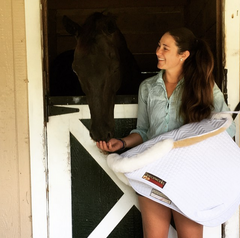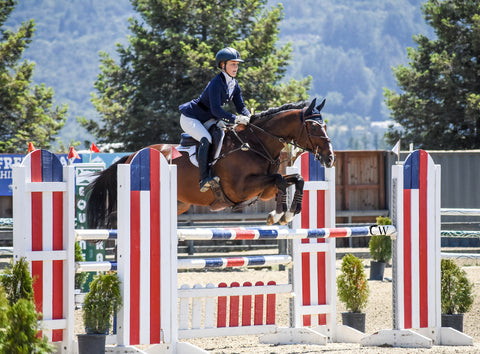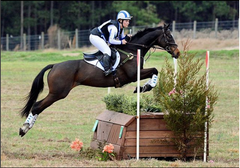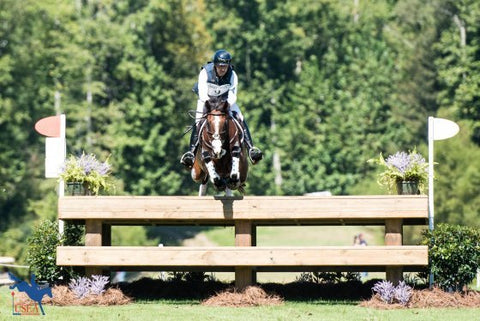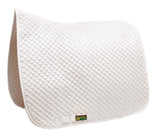The Race to Le Lion: Holekamp/Turner Grant Puts USEA Young Event Horse Graduates on A World Stage at Le Lion d’Angers

Authored By: Shelby Allen - USEA Staff
 I
I
Fleecework's Royal, the current top contender for the 2016 Holekamp/Turner YEH Le Lion d'Angers Grant, owned by Judith McSwain, bred by Charlotte Wrather, and ridden by Tamra Smith. USEA/Leslie Mintz Photo.
It may seem as if Europe has cornered the market on producing high-caliber horses for eventing, but the United States is nipping at their heels. In its second year, the Holekamp/Turner Young Event Horse Le Lion d’Angers Grant aims to send the top American produced, and even more ideally American bred, 7-year-old to the FEI World Breeding Eventing Championships this fall. The grant, backed by Dr. Tim and Cheryl Holekamp and Christine Turner, is awarded to the highest-placing Young Event Horse Program (YEH) graduate who is qualified and willing to compete.
A Pathway
The purpose of the grant supports the ideology of its parent program: to encourage the domestic breeding and training of top quality horses. “It’s part of a pathway,” explained Dr. Holekamp, who also co-chairs the YEH Program. “We’re interested in stimulating the production of top quality eventing horses here in North America – especially the United States.”
The FEI World Breeding Eventing Championship is the pinnacle of a young horse’s training, reached after funneling through national and breed-based young horse competitions. This training pathway is very established in European countries, and this grant is aimed at producing something similar in the United States.

The current top contender for the grant, Fleecework's Royal, as a 6-year-old. Amy McCool Photo.
The beginnings of this pathway were born with the creation of the YEH program in 2005 and eventually the Future Event Horse (FEH) program in 2007. The aim is for breeders to have their young stock evaluated in hand as 1-, 2- and 3-year-olds in the FEH program before being again assessed as 4- and 5-year-olds in the YEH program.
Holekamp argues that the only way to test the merit of U.S. breeding and training is to compete in an entirely age-based competition. “The only way we can really put 7-year-olds to the test is to put them in an environment where they are competing against other top horses, and there’s only one place to do that – Le Lion – it’s the who’s who of the top.” he explained. “Perhaps even more importantly, our studies show that horses that do reasonably well as 7-year-olds at Lion have about a 50% chance at making it at the four-star level. That’s truly a pageant of the top 7-year-olds in the world.”
“If we’re successful at Le Lion with YEH horses then we’ll be proving that our system is accurately measuring and attracting young horses into this pathway of development from breeding and foaling up to three- and four-star competition.”
Looking Back
In its first year, the Holekamp/Turner Young Event Horse Le Lion d’Angers Grant couldn’t be described any less than a complete success. The funds were awarded to D.A. Duras (Numero Uno x Medoc), a then-7-year-old Dutch Warmblood gelding owned by Debbie Adams and bred by Paul Hendrix. “Duras” pushed through a true championship track to finish in ninth with Kelly Prather in the irons against arguably the best young horses in the world.

D.A. Duras at Le Lion d'Angers. Photo by Libby Law Photography.
Even for a horse who competed in a CCI2* stateside in preparation, the competition was daunting. Big, bold questions on cross-country were coupled with increased galloping. “It’s a CCI2* competition, but the course is very difficult. They gallop more than ten minutes on a two-star course – that’s very uncommon,” explained Dr. Holekamp. “It’s the cross-country that really sorts them out. The course itself is both technically and athletically difficult. That’s probably the reason it’s so successful at identifying those horses that are bound for four-star futures.” Despite this, Duras pushed forward with ease and slowly climbed the leaderboard until he found a top-ten spot and proved that American-produced horses are a force to be reckoned with.
Since then, Duras has continued to climb, now with Lauren Kieffer in the tack. He has gone on to secure a top ten finish at his first CIC3*, and then win the Advanced division at the Horse Park of New Jersey a month later.
Forward Thinking
Each year that the YEH program grows, so do the expectations for its graduates as we see the field get stronger. “Since the Holekamp/Turner Grant, all our entries have skyrocketed, and it’s not just that they’re higher, but the quality of horses is much better,” said Marilyn Payne, young horse expert and co-chair of the YEH Program.
The goal for this grant, is to give these talented young horses their first of many international appearances. “We’d like to see in the long term that these horses be trained and developed to then compete internationally for the U.S.,” Payne said. “There are horses getting up there. There are quite a few [YEH graduates] that have gone through the three- and four-star level. We want to keep developing that.”
“It showcases our horses to the rest of the world. People think you need to go to Europe to get a good horse, and we’re trying to develop our breeding program to produce top quality horses so that our riders don’t need to go to Europe to buy. This is a great way to show that we do breed top quality horses that can stand up to the rest of the world in competition.”
Horses eligible for the 7-year-old CCI2* at the FEI World Breeding Eventing Championships this year were the highest placed 5-year-old at the YEH Championships in 2014. But a top finish in 2014 doesn’t guarantee a trip to France as the qualifications are very selective. Only 70 7-year-olds are eligible, and they must have completed a CCI* and CIC2* each with zero jump penalties on cross-country and a maximum of four penalties – one rail – in the show jumping. To additionally promote domestic breeding, the grant offers a larger cash prize of $17,500 for horses bred in North America, but those not domestically bred will still receive an $8,000 award.
The current top contender for the Holekamp/Turner grant is Judith McSwain’s Fleecework’s Royal (Riverman x Marisol). “Rory,” as she’s called in the barn, is a 7-year-old Holsteiner mare bred in the United States by Charlotte Wrather. Rory and her rider, Tamra Smith, have their eyes set on France, so stay tuned for their Race to Le Lion!
- Elizabeth Howell

